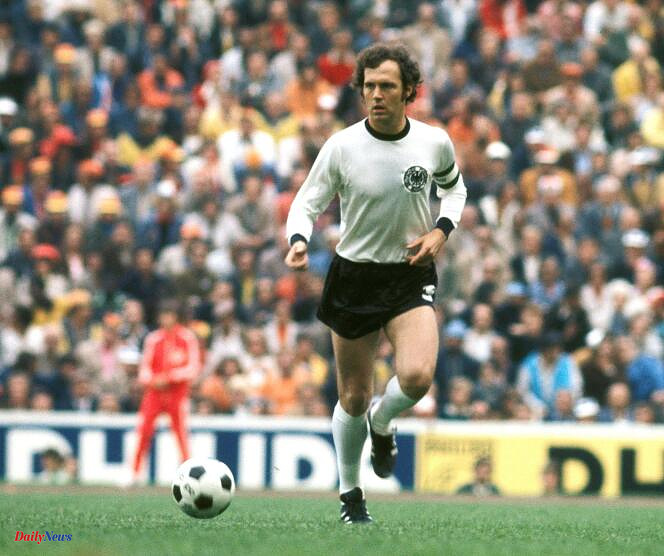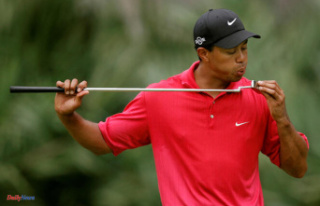A legendary figure in world football for more than half a century as a player, coach and manager, Franz Beckenbauer died on Sunday at the age of 78, the German federation (DFB) announced on Monday, January 8, leaving Germany and Bavaria orphans of their “Kaiser.”
“Franz Beckenbauer was definitely the greatest German footballer of all time, and above all a great man, whom I got to know,” Hans-Joachim Watzke, vice-president of the DFB, said in a statement.
For several years, Beckenbauer had retired to Salzburg, an Austrian city neighboring his native Bavaria. Tired of illness, he had gradually reduced his public appearances.
For his 75th birthday at the end of summer 2020 in the midst of the Covid-19 pandemic, Beckenbauer spoke of death, and his own disappearance, in a documentary on German public television ARD.
"The question is: 'When does that moment come when we disappear into another sphere?' Or somewhere else and we don't know exactly where. The world is big enough, there are enough hiding places where you can land. But this uncertainty concerns me. »
At the beginning of January 2023, the “Kaiser” had to give up going to Brazil for the funeral of “King” Pelé, with whom he had played a season in the jersey of the New York Cosmos. In August of the same year, he missed the traditional annual gathering of the 1990 German world champions.
Bayern as a common thread
Each time, it was for health reasons that he was forced to decline the invitations. Operated on several occasions for coronary bypass operations, he lost sight in his right eye a few months ago.
The last time he appeared at the Allianz Arena to watch “his” Bayern Munich play was at the end of August 2022 for a league match against Borussia Mönchengladbach.
A few weeks earlier, he had made a detour to northern Bavaria in Herzogenaurach, to support the German players in full preparation for Euro 2022.
A post-war child – he was born in September 1945 – in the working-class district of Giesing in southern Munich, Beckenbauer learned to play soccer at local club SC 1906 Munich before moving on to Bayern, after being denied by rivals TSV Munich 1860.
Bayern was the common thread of his career, more than five decades in the world of football during which he lived three lives, the first as a player in the 1960s and 1970s, the second as a coach in the second half of the 1980s, and a last one as leader in the 1990s and 2000s, crowned with success and concluded on suspicions of corruption.
Image once damaged
Winner of the European Champion Clubs' Cup in 1974, 1975, and 1976 with Bayern, European champion in 1972 and world champion in 1974 with the Mannschaft, Golden Ball in 1972 and 1976 (a rarity for a defender ), Beckenbauer has won every trophy possible for a player.
But he also built his legend on setbacks, like this 1970 World Cup semi-final lost against Italy, which remained as the “match of the century”, which he ended up with his arm in a sling after breaking his right collarbone. .
On the coaching bench, he also experienced the glory of a world champion title in 1990, and more difficult moments such as his short-lived stint at Bernard Tapie's Olympique de Marseille.
His management career began very logically at Bayern, occupying one of the three management seats for almost two decades. The “fairy tale” of the summer of 2006 with the World Cup, which he organized for Germany, will be his high point, grand boss of the global event, he rubs shoulders with world leaders.
But around ten years later, his image would be tarnished for a time by suspicions of corruption concerning obtaining the organization, accusations that he always denied.
Columnist for thirty-four years in the popular daily Bild until 2016, star of TV sets and advertising spots during and after his career, the “Kaiser” Franz was a guest in the daily life of Germans for half a century and leaves a gaping void.












